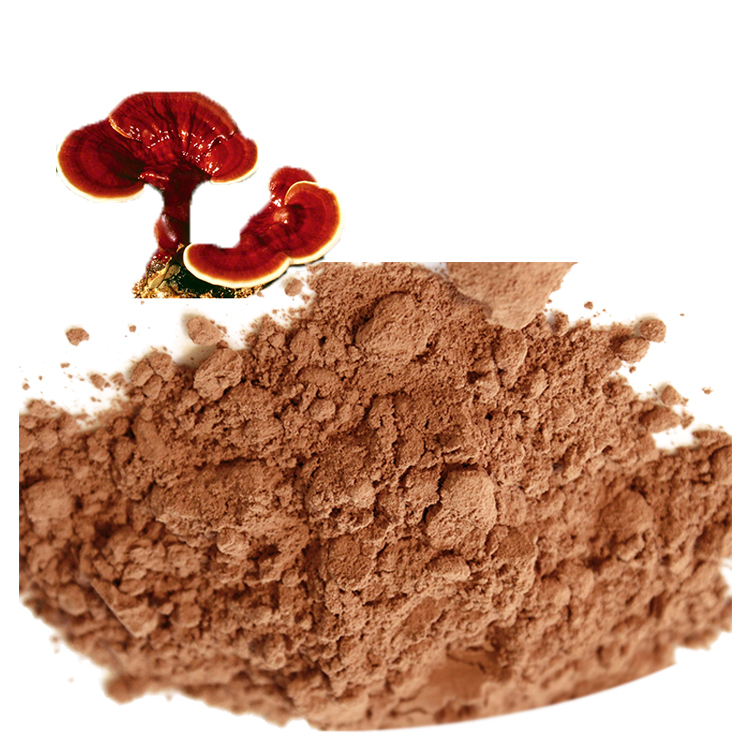Introduction
In recent years, the global health and wellness market has experienced exponential growth, driven by increasing consumer awareness of natural ingredients and functional foods. Among the numerous bioactive compounds now being incorporated into beverages, Ganoderma—also known as Lingzhi or Reishi mushroom—has captured significant attention due to its extensive history in traditional medicine and its scientifically recognized health benefits. This article explores how Ganoderma raw material products can rapidly enter the functional beverage supply chain in Europe and North America, focusing on market drivers, regulatory frameworks, quality requirements, and supply chain integration.
Market Trends and Demand for Functional Beverages
Europe and North America represent two of the largest and most sophisticated markets for functional beverages. Consumers are increasingly seeking drinks that not only quench thirst but also provide tangible health benefits such as immune support, stress reduction, and enhanced cognitive performance. According to recent market analysis, the demand for mushroom-based ingredients, especially Ganoderma extract, has surged within beverage categories such as ready-to-drink teas, coffees, energy drinks, and wellness shots. The versatility and well-documented adaptogenic, antioxidant, and immune-modulating properties of Ganoderma lucidum extract make it a highly desirable ingredient for beverage formulators.
Regulatory Considerations and Compliance
To successfully enter the European and North American markets, manufacturers of Ganoderma raw materials must navigate complex regulatory landscapes. In the European Union, ingredients such as Lingzhi extract must comply with food safety regulations outlined by the European Food Safety Authority (EFSA), including novel food approvals if the ingredient is used in new or innovative ways. In North America, compliance with the U.S. Food and Drug Administration (FDA) and Health Canada regulations is critical. This includes meeting standards for ingredient identity, purity, labeling, and permissible health claims.
Manufacturers are encouraged to obtain third-party certifications such as organic, non-GMO, and allergen-free to enhance market acceptance and consumer trust. Robust documentation and traceability from cultivation to extraction ensure that regulatory submissions are efficient and transparent, reducing time-to-market and mitigating the risk of compliance issues.
Quality Assurance and Product Differentiation
Quality is paramount when integrating Ganoderma raw materials into the functional beverage supply chain. Leading beverage brands require raw material suppliers to provide standardized extracts with verifiable bioactive content, low levels of contaminants, and consistent organoleptic properties. Reishi mushroom extract suppliers should offer Certificates of Analysis (COA) verifying polysaccharide, triterpenoid, and beta-glucan content, as well as results from heavy metal, pesticide, and microbiological testing.
Differentiation is achieved through advanced processing technologies, such as cold-processing and quick-dissolve granulation, which preserve bioactivity and optimize solubility in both hot and cold beverages. Value-added features like eco-friendly and recyclable packaging further align with sustainability trends in these mature markets.
Integration Into Beverage Formulation and Manufacturing
One of the keys to rapid supply chain entry is the ability to collaborate closely with beverage brands and contract manufacturers. Suppliers of Ganoderma raw materials must provide technical support for formulation, including data on stability, flavor masking, and synergistic combinations with other functional ingredients. Easy-to-use formats—such as water-soluble powders and pre-blended granules—enable seamless integration into production lines.
Establishing strategic partnerships with local distributors and co-packers in Europe and North America accelerates market penetration by leveraging established networks and knowledge of local preferences. Early engagement in product development cycles allows suppliers to adapt their offerings to the evolving requirements of beverage brands and regulatory authorities.
Building Consumer Awareness and Trust
Consumer education is critical to driving adoption of Ganoderma-containing beverages. Marketing efforts should highlight the unique history of Ganoderma in traditional medicine, supported by scientific evidence of efficacy and safety. Transparent labeling, third-party certifications, and QR codes linking to detailed product information can build trust and facilitate informed purchasing decisions.
Participation in industry events, trade shows, and thought leadership activities also raises the profile of Ganoderma products among formulators, retailers, and end consumers. Aligning brand narratives with prevailing health trends—such as immunity, stress management, and sustainability—maximizes relevance and consumer appeal.
Conclusion
The pathway for Ganoderma raw material products to rapidly enter the functional beverage supply chain in Europe and North America is clear: focus on regulatory compliance, uncompromising quality, innovative processing, and collaborative partnerships. By delivering consistent, science-backed, and value-added ingredients, Ganoderma suppliers can establish themselves as indispensable partners for beverage brands seeking to meet the demands of today’s health-conscious consumers.
Read More:
Key Considerations for Controlling Residual Solvents and Heavy Metals in Ganoderma Raw Materials
Why Global Wellness Brands Are Seeking Organic Mushroom Powder OEM Partners
Hangzhou Molai Biotech Co., Ltd has supply capacity 1200+ tons per year for mushroom powders and extracts, including the mushroom mycelium from modern technology of Deeply Liquid Fermentation and fruiting bodies from the grown real mushrooms to meet the different markets.
Hangzhou Molai Biotech Co., Ltd supplies the products both in Powders and Extracts for commercial using worldwidely, such as Cordyceps Sinensis, Cordyceps Militaris, Maitake Mushroom, Lion’s Mane Mushroom, Turkey Tail Mushroom, Reishi Mushroom, Chaga Mushroom etc.
We offer OEM and ODM services, could extract the products according to your special requirements, process the powders/extracts into Capsules, Tablets, Small Bags, Mushroom Bars, Mushroom Coffee etc.
Organic Lion's Mane Mushroom Extract
Organic Reishi Mushroom Extract
Organic Cordyceps Militaris Extract
Organic Turkey Tail Mushroom Extract
Organic Chaga Mushroom Extract
Organic Shiitake Mushroom Extract
Organic Maitake Mushroom Extract
Organic Tremella Mushroom Extract






